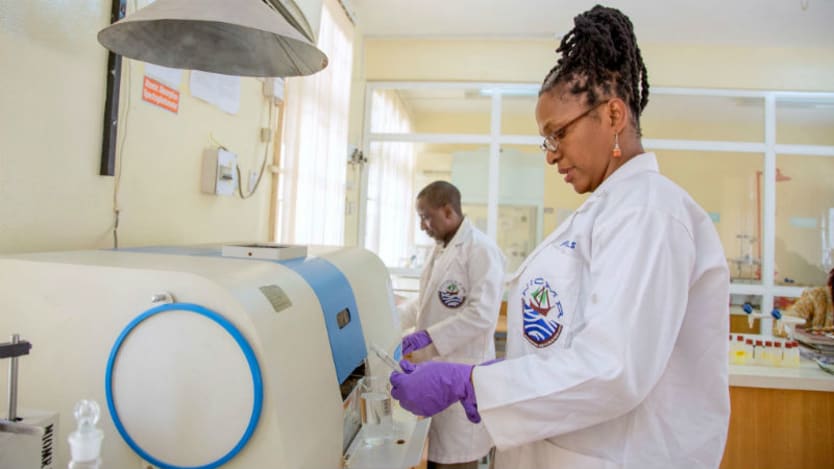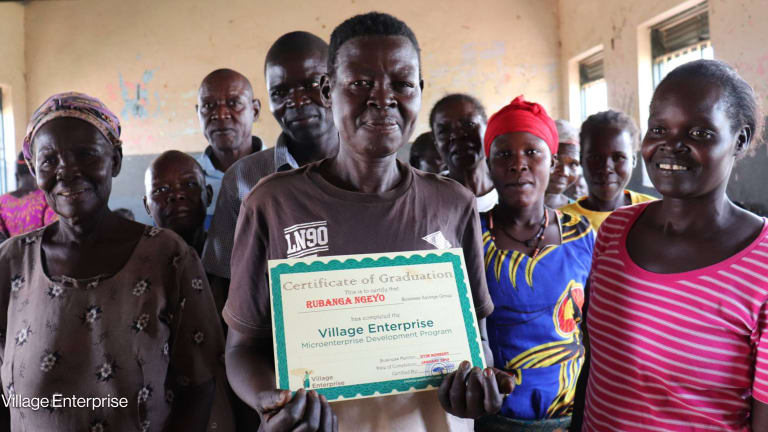
“I would like to see the scientist working on beans; do you know where I can find him?” I got asked this question more times that I could count.
As a young female African researcher working in Malawi for an international agriculture research organization, my office was the first in a long corridor of offices where we were hosted by the National Research Organization. In the eyes of the regular visitors to the office, I did not fit the image of an agricultural scientist.
See more related topics:
► Opinion: How women can transform African agriculture — and the economy
► Opinion: We can make agricultural work attractive for Africa's youth. Here's how.
► With 2 new initiatives, AfDB's 'Feed Africa' strategy takes shape
► African Women Leaders Network advocates for more women in leadership
A recent study by the International Food Policy Research Institute shows that in 2014, only 24 percent of researchers working in the agricultural sciences were women, and only 17 percent of those in leadership positions were women in a sample of 40 sub-Saharan African countries. This matters because the evidence shows that better jobs for women in agriculture leads to higher wages and greater decision making — which ultimately has a positive impact on the ways households spend money on children’s nutrition, health, and education. Having more women in agricultural research also ensures that this workforce is representative of its client base: Smallholder farmers, the majority of whom are women.
We also know that having more women in science and in business is good for the economy. There is growing evidence of the positive effect of increasing gender parity on economic growth, with one report estimating that it could add $12 trillion to the global economy.
There has been a lot of analysis of what is holding women back from advancing in science. Reasons range from unequal access to education opportunities for women and girls, teaching systems that do not consider gender equality, and invisible and unconscious gender bias among others.
What hasn’t often gotten enough attention is examining what is working to keep women and girls in science and how that can be replicated across the continent. We know it is possible to reach gender parity in sciences. In medicine for example — a field once dominated by men — the percentage of women doctors is rising rapidly, and exceeding the number of men in the profession in some countries. In other sciences, including agricultural sciences and engineering, getting to parity, however, still remains problematic.
We can change this.
First, we must institutionalise women’s programs into agricultural organizations rather than having them as separate programs. Across the continent, there are programs promoting women in agricultural sciences. The African Women in Agriculture Research and Development, for example, is a mentoring and training program aimed at building the current and next generations of women leaders in agriculture research. Since its inception, 1,158 women have gone through the fellowship. This number is a drop in the ocean. To get to scale, such programs should be embedded in African research organizations.
For example, each research organization in its planning and budgeting can plan and finance a women’s mentoring program, with senior researchers acting as mentors for junior women researchers. Research organizations often have training programs, but most often, these programs focus on the technical aspects of the research. Including leadership programs and funded research placements for women researchers in advanced research institutions can lead to more women having the necessary skills and confidence to get into leadership positions.
We also need to make sure that such mentoring, fellowship, and other capacity building programs for agriculture set explicit targets for women. Most often, what you find in academia and research organizations is targets of 30 percent women, or no target at all. As long as such low targets remain the default, the proportion of women in agricultural sciences will remain where it is, at 24 percent. And our agriculture research and policies will continue to leave out this critical demographic at the expense of Africa’s families and children.
Some might argue that setting targets is discriminatory, or such high targets cannot be achieved. Evidence, however, shows that in countries and sectors where targets have been high, gender parity has been more rapidly achieved. For example, Norway was the first country to set targets for women in corporate boards, and in 4 years, between 2004 and 2008, the country more than doubled its female membership in boards from 15.9 percent to 40 percent. Canada’s prime minister set a target for gender parity in his cabinet and after he was elected, he appointed a cabinet with 50 percent women. In Rwanda, a 50 percent target for women has seen the number of women in parliament rise to 64 percent.
And finally, the way agriculture is taught needs to change to attract more young women. We will only have as many women in research as are in the pipeline. While the concept of agriculture has changed with recent technological advancements, the way agriculture is taught in schools and colleges has remained static: It is mainly focused on crop and animal production, and without clear career paths outside of government institutions.
Integrating new innovations such as the application of information and communication technology in agriculture, entrepreneurship — including student interactions with entrepreneurs — and incorporating agriculture into other courses such as engineering will give the consistent message that the agriculture of the future is one that is technologically savvy, innovative, and an attractive career path for young Africans — including women.
The African Union 2063 agenda’s vision is for an Africa that is prosperous and that represents a dynamic force in the international arena. This vision cannot be achieved while leaving half of the population, women and girls, behind.








